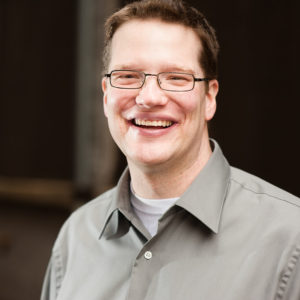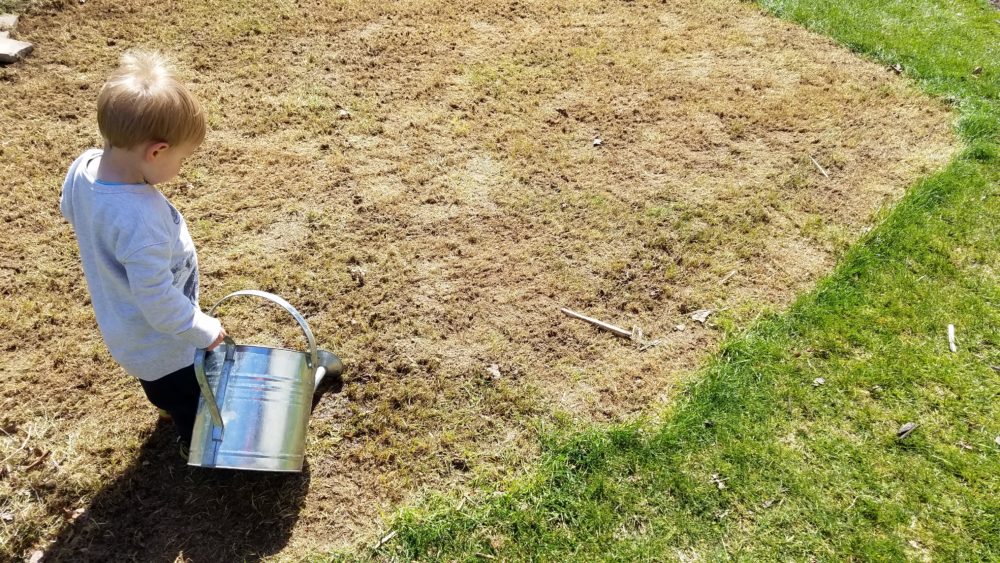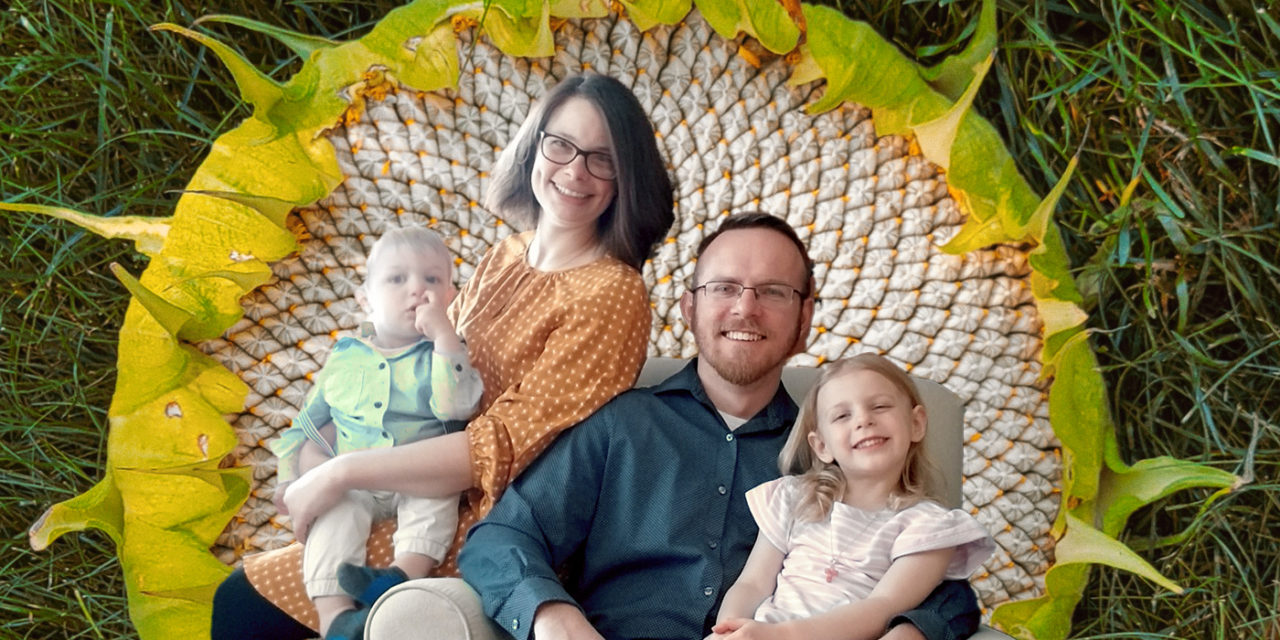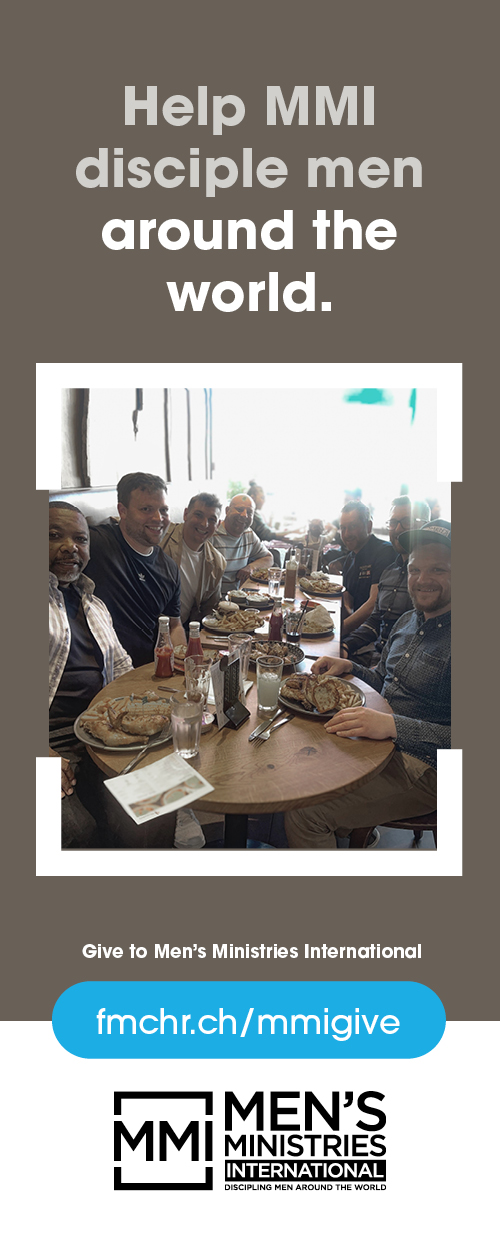
Jeff Finley
Light + Life Executive Editor
Jeff Finley is this magazine’s executive editor. He joined the Light+Life team in 2011 after a dozen years of reporting and editing for Sun-Times Media. He is a member of John Wesley Free Methodist Church where his wife, Jen, serves as the lead pastor.
by Jeff Finley
Samara Church feeds residents of the Lansing, Michigan, area both spiritually and physically while engaging in cross-cultural collaboration with the Ojibwe, Odawa and Potawatomi tribes that have called the Great Lakes State home for centuries.
Samara is a 3-year-old church plant that exemplifies the Christ-compelled multiplication taking place in the Free Methodist Church USA’s East Michigan Conference. Like several other Free Methodist congregations, Samara is a dinner church — an approach also becoming more common in other denominations and theological streams.
“I’m amazed at what God is doing in the lives of our friends, and how much He will use the little we give,” said Justin Fast, Samara’s pastor who also works bi-vocationally as a consultant specializing in food systems, health and human services. “Jesus in His wisdom made the central act of His remembrance a meal. That matters.”
According to the congregation’s website, “Samara provides a place at the table unlike any other — a network of families bringing faith to life through cooperative living and Christian discipleship over delicious, sustainably-sourced meals made with indigenous Mid-Michigan ingredients (or takeout, on days like that). All meals are free to participants, who are encouraged to contribute to the meal in some way. We share communion (optional) during or after the meal, followed by a scripture reading and facilitated discussion to apply the reading to daily life. Jesus said ‘Let the children come to me. Don’t stop them! For the Kingdom of Heaven belongs to those who are like these children.’ We plan our gatherings with them in mind. No childcare required — they dine and worship with us.”
Don’t expect to join Samara Church for worship on a Sunday morning.
“We meet on Wednesday nights biweekly because that’s what works for the community,” Fast said. “We’re working on remaining intimate without being insular.”
This intimate approach distinguishes Samara.
“It’s a family meal” said Fast, who added that the table often has an empty seat “as a reminder that there are folks who are called to the table that haven’t been invited yet.”
Why is “Samara” part of the church’s name? You might not know what a samara is, but you’ve likely seen them blowing around on a spring day. The church website explains, “Whirligigs, helicopters, whatever you call them — samaras are the tiny, winged seeds of the sugar maple tree that took root and spread throughout mid-Michigan after the last Ice Age, changing the face of Mid-Michigan for generations to come. Be encouraged! Even great forests have small beginnings, after all.”
“Once you notice a samara, you’ll notice them everywhere,” Fast said. The congregation envisions becoming “one of many similar churches in a network.”
Samara Church meets in homes or — because of the COVID-19 pandemic — online. The church continues to grow despite the challenging times.
“When Michigan went on lockdown, a lot of our conversation went over Zoom. That was really challenging with small kids,” Fast said.
The church members curated children’s book lists on scriptural themes for their members and the community. They watched online videos together to help with their children’s daily discipleship, and then the adults connected online for fellowship and teaching at 8:30 p.m. after children went to bed. When possible, they held outdoor events, such as picnics, service projects, and fruit-tree planting with the children.
Following God’s Call
Fast sensed God’s call on his life from a young age although he wasn’t sure about where and how he would serve. He initially thought about becoming a missionary outside the United States.
“I vividly remember feeling called to ministry at about 16,” Fast said. “But I had a narrow view of what ministry could entail, and felt like I had shirked that call by not going overseas.”
Fast enrolled in Michigan State University and earned a bachelor’s degree in social relations and policy. He decided to pursue work in justice-oriented nonprofit and public policy efforts and eventually became the outreach and advocacy manager for the Food Bank Council of Michigan. His pursuits reflected his faith, but he no longer envisioned a career in formal ministry.
“However, I quickly learned that I was working with a lot of churches,” said Fast, who noted that 80 percent of the local food pantries are through churches. He also found himself simultaneously “engaged in other forms of ministry — leading Bible studies, young adult ministry, service projects, and so forth. It was really a long process of other people discipling me and realizing that God was calling me to ‘bloom where I’m planted.’”
Fast attended Central Free Methodist Church in Lansing, Michigan, where Bruce N.G. Cromwell (now the superintendent of the Free Methodist Church’s Great Plains and Mid-America conferences) served as the lead pastor and Steve Tungate (now the director of the Center for Pastoral Formation) served as the discipleship pastor at the time.
“Steve was discipling me and I shared with him my sense of calling,” said Fast, who expressed appreciation for Tungate and others who “encouraged me to answer that call and go into ordained ministry. I’m really grateful to Pastor Steve and Hannah, my wife, for that.”
He took theological courses through the East Michigan Training Institute, which he described as “a great experience connecting with other pastors throughout the conference and getting to know them.” He became an ordained elder in 2018 and initially was appointed to Central FMC, where he led an agrarian ministry, farming on a formerly vacant urban lot across from the church building.

Micro Ministry
Superintendent Brad Button later asked Fast if he would consider an appointment to conference service for microchurch development. Fast wasn’t familiar at the time with the terminology of a microchurch, which Outreach Magazine defines as “an intentionally simple, streamlined approach to church that’s often small, volunteer led and informal in style. Typically these spiritual communities involve five to 35 people.”
Despite the unfamiliar verbiage, Fast knew that he had repeatedly encountered people who had trouble attending or adjusting to Sunday morning services and other events inside church buildings.
“We were ministering to people really enamored with Jesus but who needed to connect with Him in a different context,” Fast said.
Shortly after his conversation with Button, a man Fast had been discipling asked if Fast would have a regular dinner with their family while sharing stories about Jesus with them.
“It was really nice to see God at work in that. Brad had already reached out and acknowledged that sense of commission as well as calling,” Fast said. “The folks who then became members of our church were the ones requesting that [microchurch concept] because they saw in that something that they craved. … They felt like they didn’t fit into the Christian culture, but really wanted to know the Christ that we profess.”
Leading up to those conversations, the Fasts had been praying and preparing. In 2017, Fast began the online Master of Science in sustainable food systems program at Green Mountain College in Vermont and “shamelessly applied it to the benefit of our church, focusing both on foodways local to Mid-Michigan and on the history of the symposia — the early meals of the church and their effects.”
His thesis is titled “Dinner Church as a Multifunctional Alternative to Charitable Food Relief,” and he described it as “a resource for churches seeking but struggling to minister to the hungry, from the perspective of a pastor who has worked in the emergency food system.” He said his research considered how “church being church as we have been for millennia (instead of the way we have since the 1980s) could really benefit not only our communities but our churches too. It’s revitalizing.” The thesis compares food pantries to dinner churches and finds that “the dinner church model offers more co-benefits for the same cost, in terms of improved food security, dietary quality, community-building, and Christian spiritual development.”
Instead of operating a traditional food pantry or soup kitchen, Fast said that Samara Church strives to invite people to a meal. Hosting a meal for a hungry person “is not always possible or practical, but whenever it is, that’s what we aim for.”
Gardening and Reconciling
During Michigan’s COVID-19 lockdown, Samara Church members faced limited mobility and resources. Together they looked at their own homes and prayed, “What other ways can we love our neighbors and glorify God right here, right now, with what he’s already given us?” The answer included repurposing the Fasts’ backyard.
The suburban yard, which includes a 15 by 15 feet garden, isn’t typical. Much of the landscaping is edible and the produce selection, while grown in Michigan for countless centuries, might seem unfamiliar to a typical Lansing area garden today.
“We decided we would duo-purpose the garden by using indigenous seed varieties,” Fast said. “We’re growing 27 varieties of indigenous crops now with the idea that we consume some for our dinner church. That in and of itself is ministry. It’s a way to nourish bodies (temples), but it’s also a straightforward way to engage people in a story that’s bigger than themselves, a story of a particular place and its people — neighbors that we’re called to love as ourselves.”
Samara Church also is working to return these indigenous seed varieties to Native American tribes.
“These are varieties that many of the tribes themselves often no longer have access to. We reached out to the Native American Food Sovereignty Alliance,” said Fast, “to learn how we might support their efforts. Wow; what a conversation! It’s been a privilege to learn with and from these indigenous communities.”
It’s also been evidence of God’s hand at work abroad.
Samara Church is also active on Seed Savers Exchange, which Fast described as a “good place to share seeds with other people who are trying to preserve and grow endangered and culturally important varieties.” One group within the exchange offered free seeds to Samara, and Fast said another group’s reply “was like reading one of Paul’s letters. It was just this overtly Christian response crediting God’s providence.” Although the latter group was from Maine, they had grown out several seed varieties from Michigan’s tribes just before Fast contacted them.
Some groups are not at all eager to connect with a Christian ministry. Fast said some groups “really chafe at the idea that a church would be trying to engage them in this way. They associate Jesus with forced assimilation and boarding schools. They see the church as a perpetrator of harm, not a as a source of healing. That’s understandable,” said Fast, “I think we as Christians — especially Christians of settler descent — need to be humble and good students of history when it comes to indigenous cultures, colonialism and white settlement in specific places.” (Fast recommends the InterVarsity Press book “Unsettling Truths” by Mark Charles and Soong-Chan Rah for an understanding of how Christians’ witness is damaged by the “Doctrine of Discovery.”)
By acknowledging this history and being clear about the church’s desire to promote reconciliation and healing, “some of these folks ended up participating too. It was this beautiful example of something so far beyond our control — God multiplying literally in the form of our seeds but figuratively in the form of these relationships opportunities to reconcile. And all through this postage stamp of a backyard garden during lockdown.”
Fast does not have Native American ancestry, but his awareness of indigenous people began “in a rural library as a kid. I sat there shocked as I read the history of the Potawatomi’s forced removal from what is now Homer, Michigan — the land on which my family have lived and loved and worshipped ever since,” he recalled. “It was Michigan’s Trail of Tears, and we knew nothing about it.”
Collaboration with Native Americans is not the only way Samara Church reflects The Free Methodist Way values of cross-cultural collaboration and love-driven justice.
“Our multiracial church got to support each other through the riots following George Floyd’s murder,” Fast said. “Together, we celebrated Pentecost as cities were burning, all the while studying the book of Ephesians and God’s vision of reconciliation through His church.”
It’s not always easy to practice reconciliation in the divisive world of 2021, but Fast noted, “At the end of the day, we’re ministers of reconciliation, and we worship a God who’s calling people of all tribes and tongues.”
+

Jeff Finley
Light + Life Executive Editor
Jeff Finley is this magazine’s executive editor. He joined the Light+Life team in 2011 after a dozen years of reporting and editing for Sun-Times Media. He is a member of John Wesley Free Methodist Church where his wife, Jen, serves as the lead pastor.









